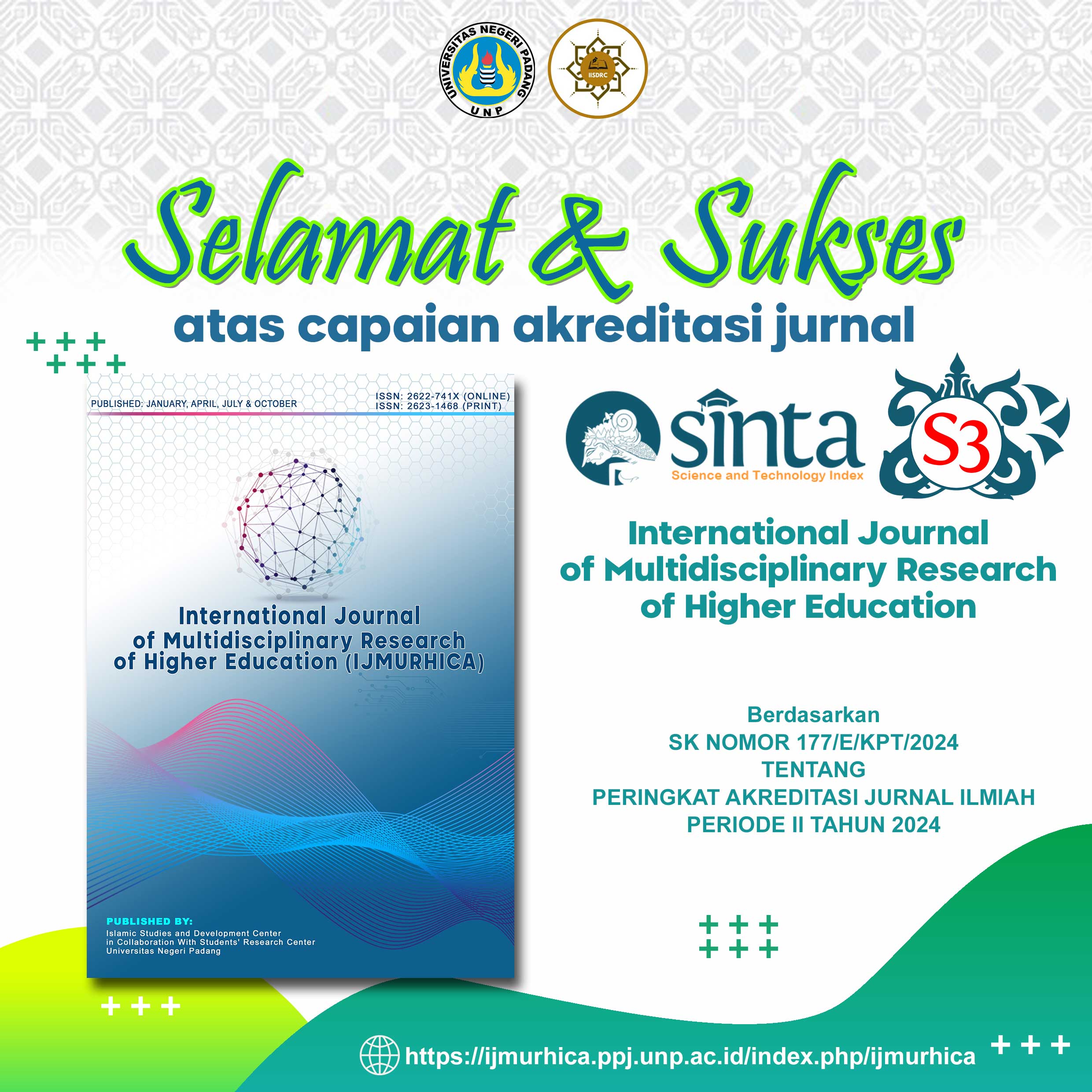The Influence of the 7E Learning Cycle Model in Improving Student Learning Outcomes in Islamic Religious Education Learning
DOI:
https://doi.org/10.24036/ijmurhica.v7i2.210Keywords:
Influence, learning model, learning cycle 7E, learning outcomes, Islamic religious educationAbstract
The low fiqh learning outcomes of students in schools in the 2022/2023 school year and the use of learning models that are still monotonous are the background to this research. This research aims to determine the effect of the 7E learning cycle learning model on efforts to improve fiqh learning outcomes for students at school. This research uses a quasi-experimental quantitative method with a static group comparison posttest only design. Research sampling was carried out using a purposive sampling technique because it used a smaller and homogeneous sample. The research results showed that the average posttest score on the experimental class fiqh learning outcomes was 84 out of 20 students, with the highest score for the experimental class being 100 and the lowest score being 72. Meanwhile the average posttest score on the control class fiqh learning outcomes was 72.2 out of 20 students, with the highest score in the control class being 92 and the lowest score being 60. The percentage of learning completeness for experimental class students was 85%, while the percentage of learning completeness for control class students was 40%. Based on hypothesis testing with SPSS 26, the significance of α in two directions or significance (2-tailed) was 0.000, so it can be concluded that (0.000 < 0.05). Therefore, it can be said that H0 which states that there is no influence of the 7E learning cycle model on increasing student learning outcomes in Islamic religious education learning is rejected and Ha is accepted, which means that there is a significant influence of the 7E learning cycle model on increasing student learning outcomes in school






